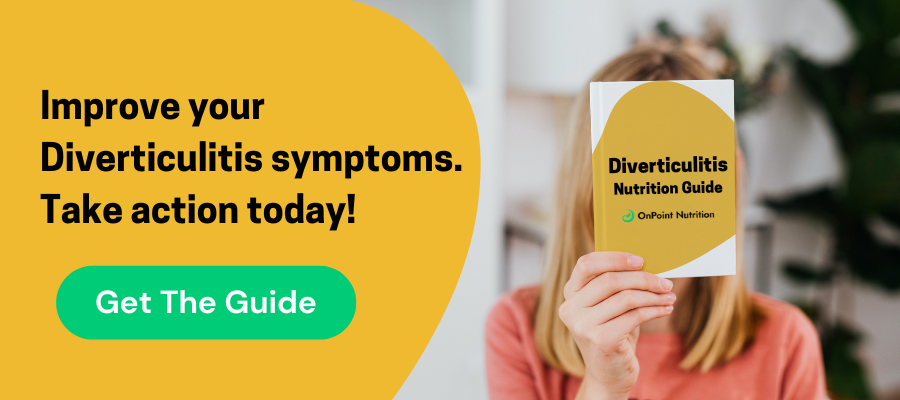
If you have Diverticulosis, you may experience diverticular bleeding as a side effect. This bleeding occurs when the pouches (diverticula) that have formed in the wall of the colon begin to bleed, which releases a noticeable amount of blood into your stool. The bleeding typically appears suddenly and clears up on its own, with no additional side effects. If the bleeding is extreme, be sure to contact your doctor as significant blood loss can cause you to become lightheaded and weak.
What causes diverticular bleeding?
Although the root cause of diverticulosis is unknown, researchers believe diverticula form from high levels of pressure pushing on weak spots in the colon wall. When your diet is low in fiber, stool motility through the intestines slows down, which increases transit time and pressure.
Diverticular pouches form in weak areas of your colon where blood vessels pass through the colon wall. Diverticular bleeding occurs when these blood vessels (within the pouches) burst open due to too much pressure.
What are the symptoms?
The one and only symptom of diverticular bleeding is dark red, maroon, or bright red blood clots in the stool.
In some cases, you may feel lightheaded, dizzy or weak. There is rarely any pain associated with diverticular bleeding and the bleeding typically resolves on its own. If you experience any of these symptoms, it’s important to contact your doctor right away to identify and stop the source of the bleeding.
How is Diverticular bleeding diagnosed?
As with many GI conditions, diverticular bleeding is diagnosed by eliminating other potential causes of the bleeding. Several imaging methods can identify the location of the bleeding: angiography and colonoscopy.
An angiogram is an x-ray test that captures images of the blood flow in a blood vessel. Coloscopy is used to inspect the colon using a long, flexible lighted viewing scope. A less common alternative test is the technetium-labeled red blood cell bleeding scan. In this test, blood is drawn, mixed with a radioactive material called technetium, injected back into your bloodstream, and traced to the source of the bleeding.
How is diverticular bleeding treated?
In most cases, diverticular bleeding will resolve on its own. However, in extreme cases, treatment may be necessary to stop the bleeding and replace lost blood. You may need to receive IV fluids, medicine, blood transfusions, and in rare cases, surgery, to remove the affected area of the colon.
Diverticular bleeding may be alarming, but in most cases it is harmless. The bleeding will likely resolve on its own within a day or two. If the bleeding is severe, or you begin to feel lightheaded or weak, contact your doctor to determine if further intervention is needed.
How to Manage Diverticular Bleeding
While most cases of diverticular bleeding will resolve on their own, it’s still important to notify your healthcare team. Even if you have experienced diverticular bleeding in the past, there’s always a chance that the bleeding will worsen and require more extensive treatment.
Early detection and investigation through Angiogram, Colonoscopy, or Tc99m RBC scan can prevent infection and excessive blood loss. That being said, you know your body better than anyone. It’s up to you to notice changes in your stool and bowel movements and take action to ensure you receive the proper treatment.
Once you have resolved the diverticular bleeding, the next step is to manage your diet to prevent a diverticulitis flare in the future.
For more information on how to manage a diverticulitis flare and improve your diet to deal with your diverticulitis, download our Diverticulitis Nutrition Guide.

Topics

Kaitlyn Willwerth is a Registered Dietitian at OnPoint Nutrition. Kaitlyn's work focuses on providing individualized health and lifestyle coaching and, most importantly, support. She is a Certified LEAP Therapist and has also completed the Monash University 'Low FODMAP Diet for IBS' online training course for health professionals.



